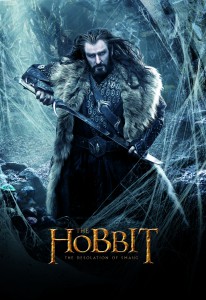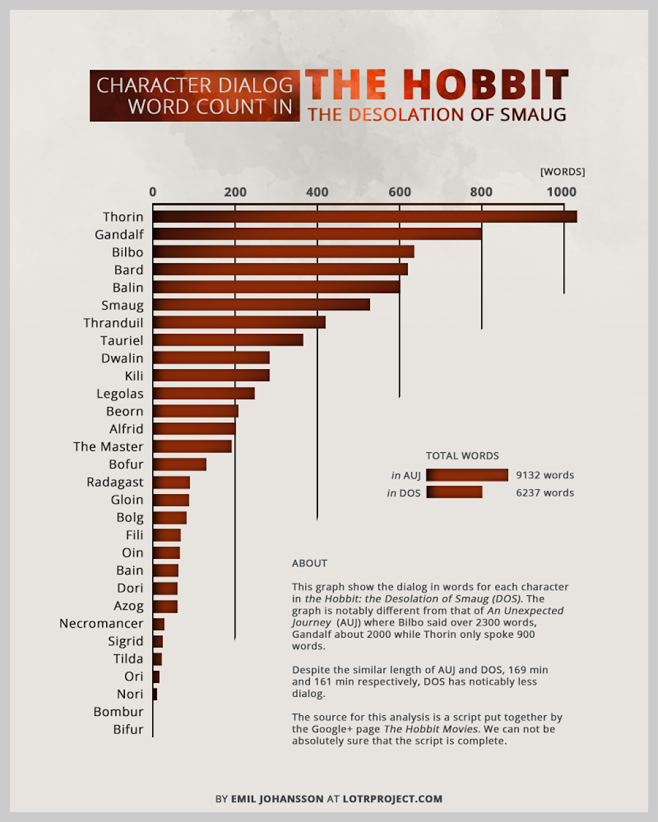 Our friends at The Hobbit Movies and LOTRProject have run the numbers on the dialogue from The Hobbit: The Desolation of Smaug. It only requires a quick glance for some interesting trends to emerge.
Our friends at The Hobbit Movies and LOTRProject have run the numbers on the dialogue from The Hobbit: The Desolation of Smaug. It only requires a quick glance for some interesting trends to emerge.
Script length
The Hobbit: The Desolation of Smaug has only 68.2% as much dialogue as An Unexpected Journey, despite being being 95.26% the length of the first film. That is: DOS is not that much shorter, but it is a great deal more laconic — which fits very much with it being an action-adventure film.
Thorin is the talkative one, not Bilbo
In fact, Bilbo comes in third on the most-wordy list, behind both Thorin and Gandalf. The uncharitable might say that Bilbo is fighting to be heard — interesting since the middle section of The Hobbit as a novel is where Bilbo truly comes into his own (from the spider encounter onward). Did the writers think they were making “The Oakenshield”?
On the other hand Bilbo is undeniably a reactive (rather than proactive) hero. The actions of others are generally what propels him to rise to the occasion. One might consider this a reflection of the novel in this sense?
Bifur and Bombur the very quiet
Neither of these dwarves have lines in he theatrical release (in English at least). There are swirling rumours that scenes filmed for the enchanted river and the white stag will be inserted for the extended edition, in which case we may at least hear Bombur speak at that point.
Legolas is the quietest elf
Although it’s certainly more than a cameo for Orlando Bloom, Legolas is nevertheless the least talkative of the key elven characters. And Thranduil, despite the fact that he never is seen outside his underground palace/fortress, says the most — most likely the result of his extended interrogation of the captured orc.



